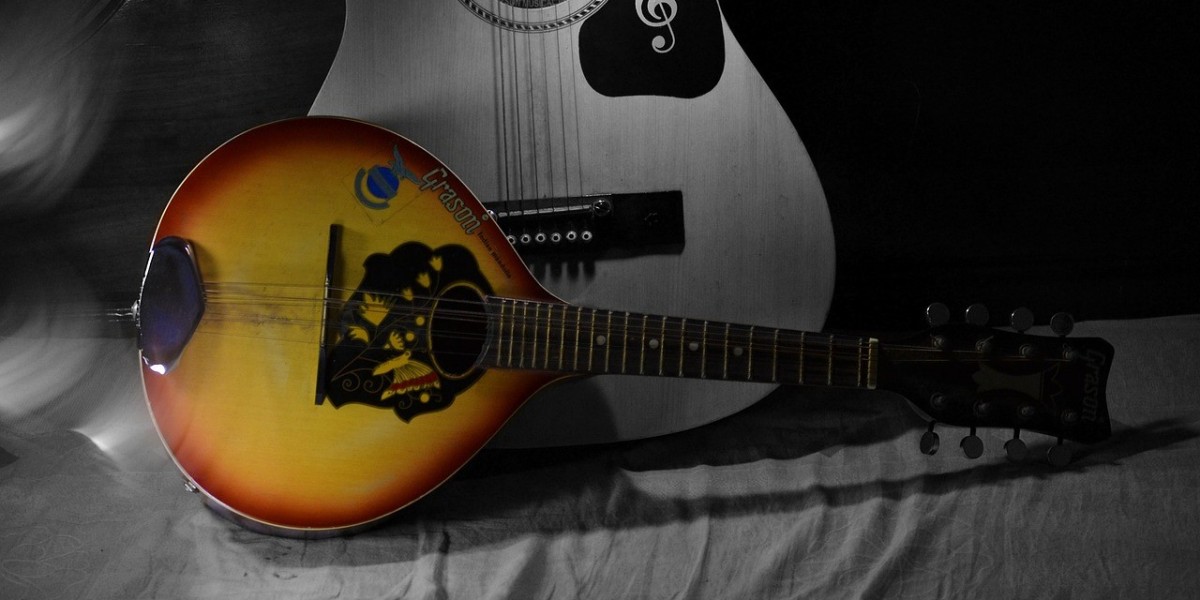Music has the power to transport us, soothe our souls, and ignite creativity. It's no wonder so many people dream of learning a musical instrument. But with countless options available, choosing the right one for you, especially as a beginner, can feel overwhelming. Worry not, aspiring musician! This guide explores the top 10 most popular instruments for beginners, helping you find the perfect match to kickstart your musical journey.
Factors to Consider When Choosing a Beginner Instrument:
Musical Preferences: What kind of music do you love? Choosing an instrument associated with genres you enjoy will boost your motivation.
Learning Style: Do you prefer a visual approach with clear notes (piano) or an instrument that relies more on ear training (violin)?
Portability: If you crave flexibility, consider lighter options like the ukulele or keyboard.
Budget: Instruments range in price. Consider starting with a more affordable option until you're sure of your commitment.
Top 10 Most Popular Instruments for Beginners:
Piano/Keyboard: The piano, with its clear layout of black and white keys, is a fantastic choice for beginners. It provides a strong foundation in music theory, allowing you to learn melodies, chords, and harmonies. Electronic keyboards offer a more portable and often more affordable alternative, with features like various musical instruments sound and rhythms. Both pianos and keyboards are readily available at most music stores electronic stores: like Guitar Center or Sam Ash and online retailers.
Guitar (Acoustic or Electric): The guitar's enduring popularity makes it a top contender for beginners. It's versatile, portable (especially acoustic guitars), and offers a vast repertoire of music styles, from folk and rock to blues and jazz. While the initial learning curve for chords and fingerpicking can be challenging, the abundance of online resources and beginner-friendly guitars makes it an accessible choice.
Ukulele: This charming Hawaiian instrument is quickly becoming a favorite among beginners. Its small size, nylon strings (gentler on fingertips), and relatively simple chord progressions make it easy to learn and play. Ukuleles are perfect for strumming along to your favorite songs or creating your own melodies. Their affordability and portability also make them ideal travel companions.
Singing (Voice): We all have the potential to be musicians! Singing is a natural and readily available instrument. You can find vocal coaches or join choirs to develop your vocal technique, breath control, and confidence. Singing offers a direct way to connect with music and express yourself creatively.
Flute: This elegant woodwind instrument is known for its beautiful, breathy tone. The flute's relatively simple fingering system and readily available beginner resources make it a popular choice. It's important to find a good quality flute, even for beginners, to ensure proper intonation and ease of playing.
Drums: Calling all rhythm enthusiasts! Drums offer a physically engaging and dynamic way to experience music. While a full drum kit might seem intimidating initially, starting with a single drum pad or learning basic beats on a practice pad can be a great introduction. Many electronic drum sets offer headphone jacks for private practice, making them ideal for apartment dwellers.
Recorder: A budget-friendly option for beginners, especially young children, the recorder is a simple yet versatile instrument. It helps develop breath control and introduces basic music theory concepts like fingering and reading notes. There are different sizes of recorders; for novices, the soprano recorder is the most popular.
Harmonica: This pocket-sized instrument offers a surprising amount of musical potential. With a bit of practice, you can learn to play melodies, chords, and even create expressive effects like bends and vibrato. Harmonicas are relatively inexpensive and highly portable, making them perfect for on-the-go music making.
Violin: The violin's rich, soaring sound is a cornerstone of classical music, but it's also found in folk, bluegrass, and even rock genres. While mastering the violin takes dedication, beginners can enjoy learning the basic scales and simple melodies. Finding a good violin teacher is crucial, as proper technique is essential to avoid bad habits and potential injury.
Cello: The cello, the larger cousin of the violin, offers a deep and warm sound. Similar to the violin, learning the cello requires dedication and guidance from a qualified teacher. However, for those drawn to its rich tonal qualities, the cello can be a rewarding instrument to learn.
Beyond the Instrument:
No matter which instrument you choose, remember that practice is the key to progress. Set realistic goals, schedule regular practice sessions, and find resources that keep you motivated. Consider enrolling in lessons for personalized guidance or joining online communities for support and inspiration. Most importantly, have fun! Learning to play an instrument should be a joyful experience that allows you to express yourself and connect with the music you love.
Additional Tips for Beginner Musicians:
Invest in Quality Gear: While you don't need the top-of-the-line instrument at the beginning, having a well-made, well-maintained instrument will make learning easier and more enjoyable. Avoid extremely cheap instruments, as they can be frustrating to play and may hinder your progress.
Take Care of Your Instrument:Learning proper instrument care habits, like cleaning your strings (for string instruments) or tuning your instrument regularly, will extend its lifespan and ensure it stays in good playing condition.
Find a Practice Space:Dedicate a quiet space for focused practice. This will help you minimize distractions and maximize your learning time.
Record Yourself:Record yourself playing and listen back. This allows you to identify areas for improvement and track your progress over time. For tablets and smartphones, there are a tonne of free recording applications accessible.
Embrace Technology:There are a wealth of online resources available for beginner musicians, including video tutorials, interactive apps, and online courses. Utilize these tools to supplement your learning and explore different learning styles.
Join the Community:Surround yourself with other musicians. Look for local music groups, jam sessions, or online communities where you can connect with people who share your passion for music.
Conclusion:
The world of music awaits! With dedication, the right instrument, and a supportive learning environment, you'll be surprised at how quickly you can develop your musical skills. So, take a deep breath, pick up your chosen instrument, and embark on this exciting journey of musical discovery!



